When I first meet the poet Inua Ellams, he is standing beside Nelson Mandela’s statue.
Our little group of strangers is huddled in the doorway of London’s Southbank Centre, right beside a sizeable bronze bust of the famous South African revolutionary’s head. The fourth member of our poetic little group hasn’t managed to find us yet.
Overhead, the springtime skies are inappropriately ominous: grey, clouded and close. I tug my thin jacket closer to my chest as my companion adds, “Communication can be pretty useful…”
Inua Ellams is a man I’ve long-followed online. He’s a poet, playwright, screenwriter, and spoken word artist – and for the purposes of today, he’s also a rather niche tour guide.
Using his poet’s eyes, Inua is about to guide us around the way he sees London.
What actually is the language of London?
Many great writers draw their inspiration from England’s capital. It’s a place at odds with itself: narrow rows of beautifully grand buildings overshadowed by the gritty tightness of modern architecture; a broad stretch of ancient water penned in on all sides by selfie sticks and hot dog stands.
Structure is crucial here. Every minute in London is an exercise in orchestrated movements. You don’t just cross these streets – you have to learn to dance and weave past people.
As my life has been less focused on physical travel recently, it’s led me to look for movement in other ways, and I’ve been thinking a lot about language.
Many of the books I’ve read recently – like Robert Macfarlane’s ‘The Old Ways’ – are so carefully written that my breath catches in my throat. The precision in Macfarlane’s details, the lyricism in his descriptions, and the clear awareness of using particular words to evoke his desired atmosphere is simply stunning.
Authors can create movement purely through the way they curate language, and I’m becoming increasingly aware that I want to achieve the same.
It’s also reminded me how much I used to value poetry. All through my teenage years and right up until the end of my undergraduate degree, I wrote in verse more than prose – and I’m not entirely sure why that stopped.
The thing I miss most about writing poems was the ease of playing with words. Unlike in long-form writing, where I’m more focused on narrative structure and an article’s overall point, poetry was usually a puzzle: a game of juggling all the ways a phrase could feel when placed against its counterparts. I still remember the joy of walking in the dry-leaf piles of a Norwich winter when the final line of a poem I’d been working at for ages simply slipped into my mind, so subtly and perfectly that I cheered quietly to myself.
That level of fun, freedom and tangibility with words is something I’d love to re-embrace again. So what better way to start than by exploring my home city with a wordsmith I’ve admired for years?
Capturing London in verse
Inua Ellams has an unabashed love for London. In a hidden corner of the Southbank Centre, he asks me and two other writers to explain our poetic backgrounds before launching into his favoured topics: identity, deconstruction, the ever-changing urban landscape and how it ties into his place within a city.
Our challenge for the day is to ‘capture London in verse’ (an experience orchestrated through a creative tour company called SideStory), achieved by using the environment around us. Our destinations change throughout the morning: Southbank to the National Portrait Gallery, Foyles Bookshop to the Poetry Cafe, and finally to an unobtrusive city pub.
Each place has resonance for Inua, and in just three hours it feels like he’s guiding us around his literary map of London.
As we move from building to building, down stairs, through tunnels and across the Thames, Inua simultaneously sets us a series of time-sensitive writing tasks. He requests observations of sensory experience – three moments each involving sight, smell, sound, taste, and texture – and suddenly my senses are on high alert.
The sloping backstreet we walk along is suddenly deafened by an onslaught of detail, from scents emanating through open cafe doors to the constant criss-cross of bodies passing us, each person cloaked in creative information.
I scribble as I walk, all sloppy handwriting and fevered fingers processing what my mind is picking up on.
When we reach the second floor of the Portrait Gallery, Inua grabs a stack of folding chairs and carries them through rooms of oil painted portraits before stopping in front of an austere looking face.
“Alexander Pope was awesome,” he says, taking a seat. “I can see him in rap battles… he took the piss out of everyone – but in verse.”
We sit quietly for a moment, weaving our recent observations into a short piece of prose before moving onward to a new location, and another writing challenge.
Finding direction through our writing
In Foyles bookshop we sit at high stools and write about shadows and light; outside on the street again, we write about well-known locations imbued with memories.
When we eventually reach an anonymous pub, Inua hands out copies of his own poem for us to read. We’re looking at his use of structure before attempting to emulate it with our own words for our final challenge. I find myself completely absorbed in the blank page in front of me, pen skating across the paper’s surface while I write about a memorable place in London.
In this barely thought-out poem, I am directing a hypothetical reader towards Trafalgar Square: towards the location of this year’s women’s march where my blood ran quick and strong, energised by the voices of thousands and their inherently positive beliefs.
I realise how much importance that event still holds for me: that it actually holds me up at times and makes me ever more determined.
Feeling out London’s light and space
“It’s fascinating and frightening… There are too many options of what to write about!”
Inua’s voice indicates the end of our final challenge, and the end of our time together. But in three hours, he’s reminded me what my main focus in writing needs to be. Knowing who you are as a writer is essential: knowing your nuances, your favoured language, and the style and structure that fits you best.
So how do you achieve that? Simple. You read, you write, and then read and write again.
I’ll always want to improve my writing, but it can be an actively positive process. It can draw from elements I know I love and feel inspired by.
Take poetry, for instance. Through its structure and the shape of its words on the page, it has an intention to guide and to connect – whether it’s about connecting people or politics or subject matter or cities.
In a recent interview, Inua said some beautiful words about London:
“I don’t really think there’s any one thing about this city – or any other city for that matter – that is a key to creativity and poetic thought. It is the entire experience. I view cities as organisms; a growing thing that is always both defined and undefined and changing from view to view, location to location, street to street, culture to culture, community to community. All of these things, I think, create a really healthy place for poetry to thrive.”
Even in the midst of a city filled with structures, barriers and cramped urban concrete, there’s a complete freedom to create something open and expansive and bright. It just depends on how you look at it.
So play with space in your writing. Play with structure. Play with the light. See how minimal changes can cause the most effect. Read how other people structure their words, to see how your voice might fit within that narrative, or entirely contradict it.
And pay attention to the world around you. Because it’s down to personal interpretation, poetry doesn’t necessarily need to have form or identity. On the bus that afternoon, I listen to two boys freestyle-battling with each other while a woman chatters on her phone behind me – and it’s pure poetry:
“I change into cultures so quickly that I don’t know where I’m from…” — “Your soul mate knows your soul, even if it’s in another language…”
It’s inescapable. Poetry is everywhere.
Disclaimer: My poetic experience through London was kindly provided by Sidestory. They have a whole host of other unique experiences on offer – although they can’t guarantee you’ll feel quite as London-lyrical as I do afterwards!

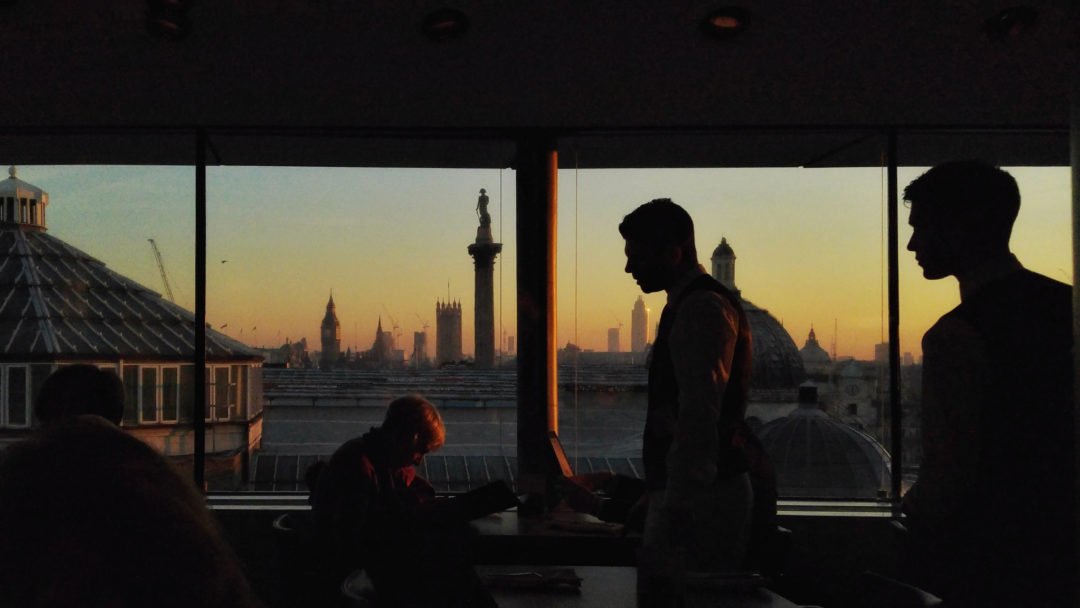
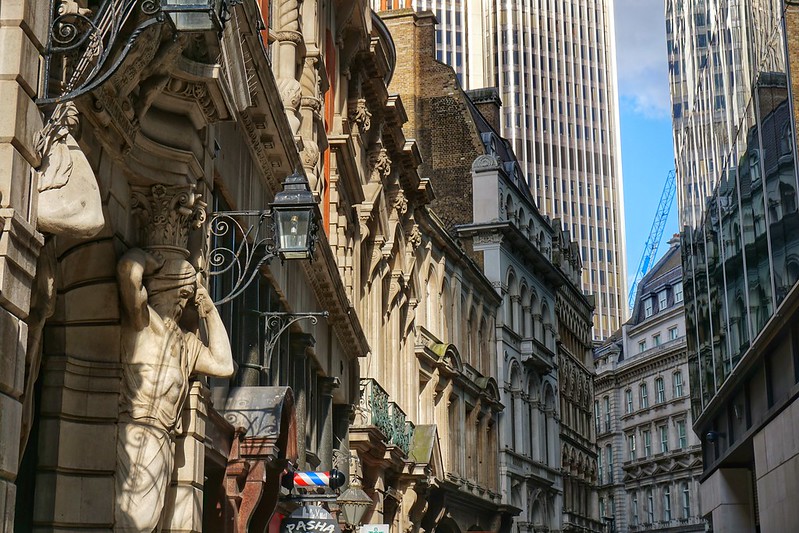
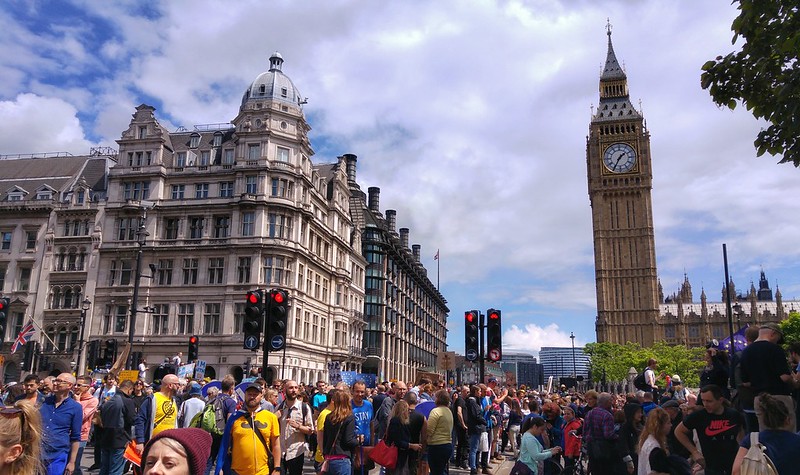
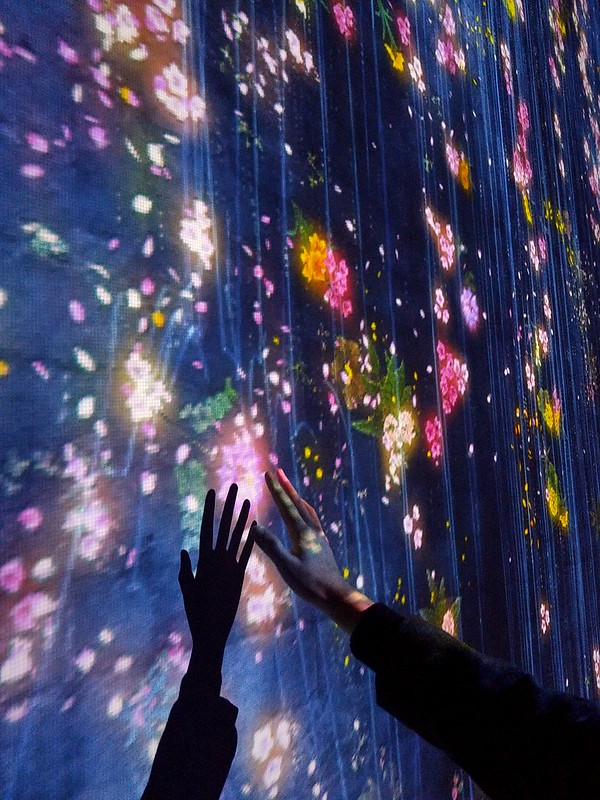
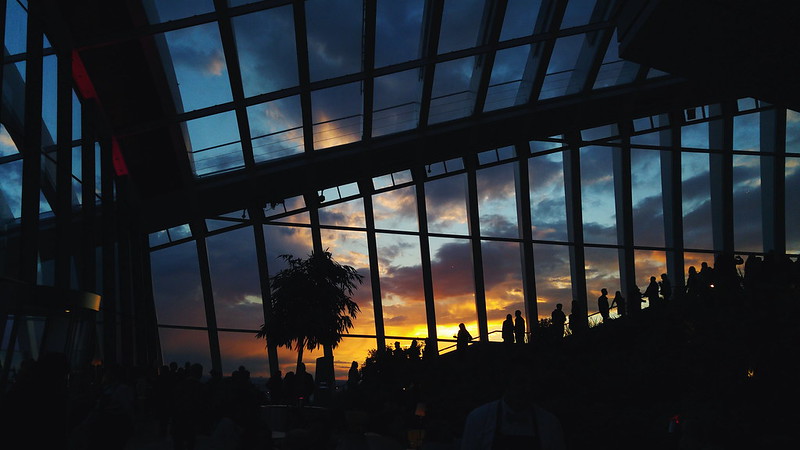
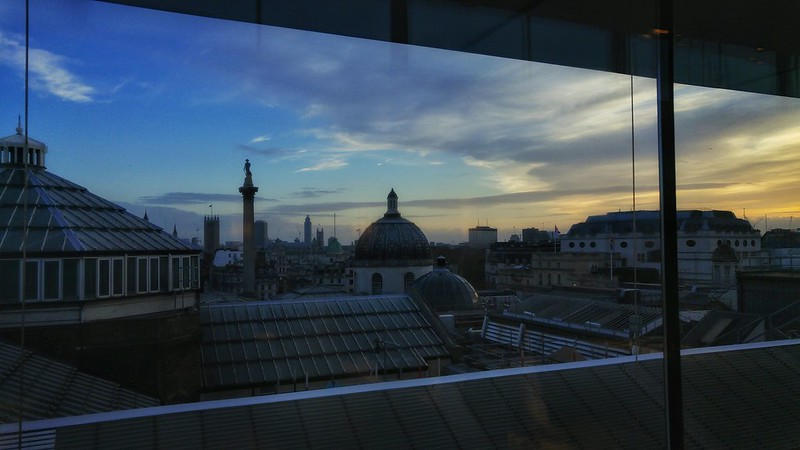
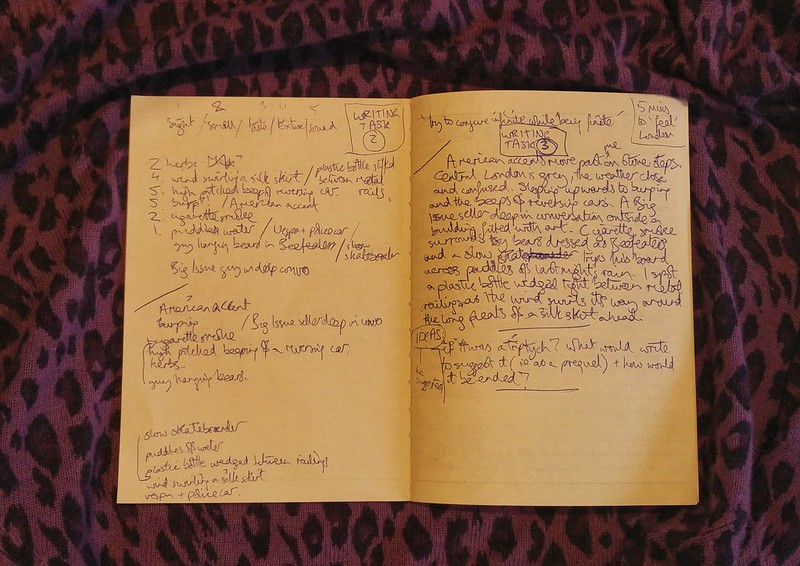
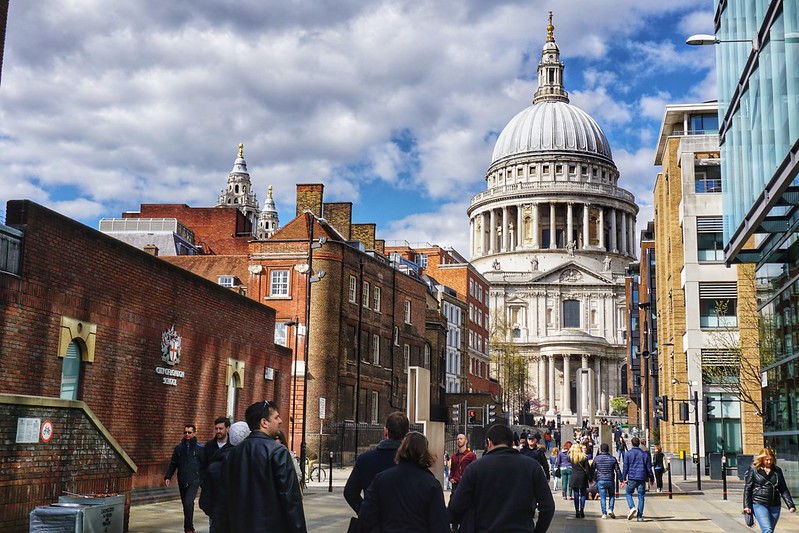
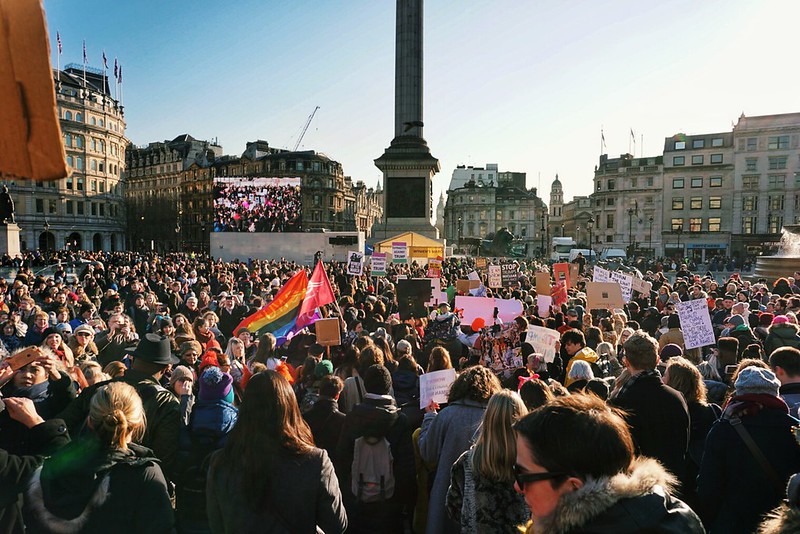
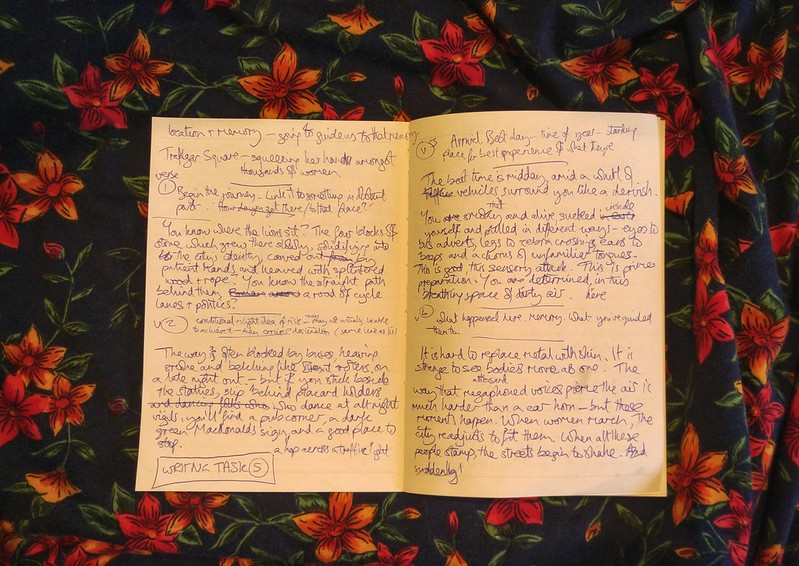
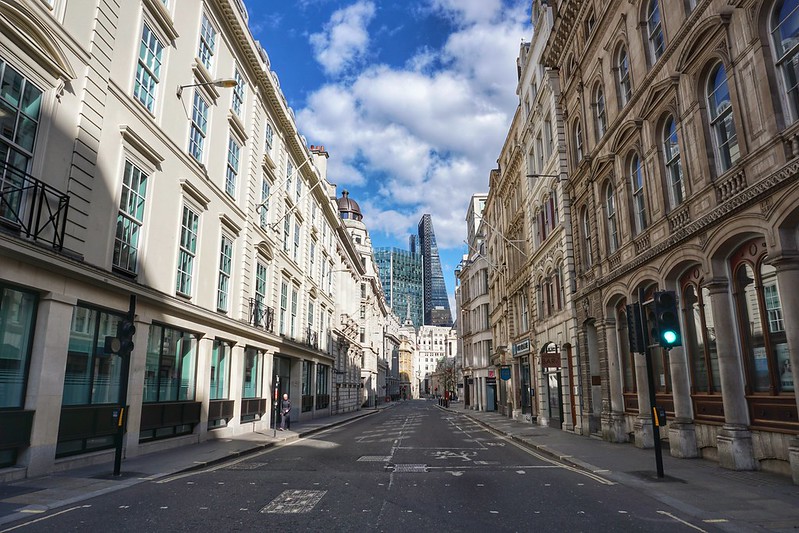
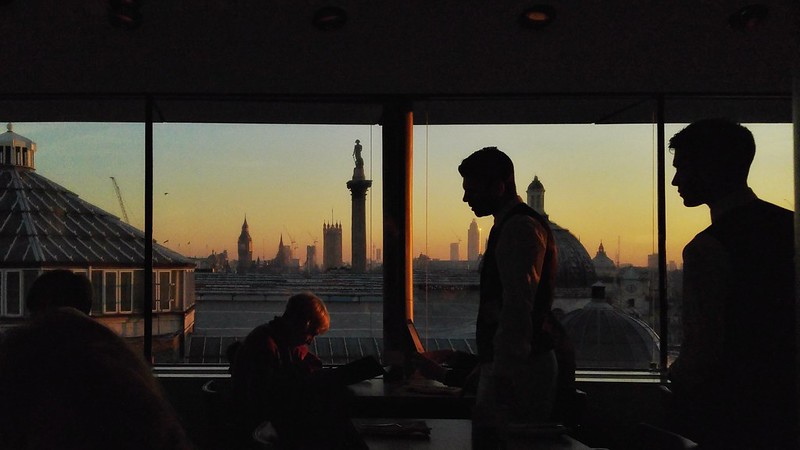
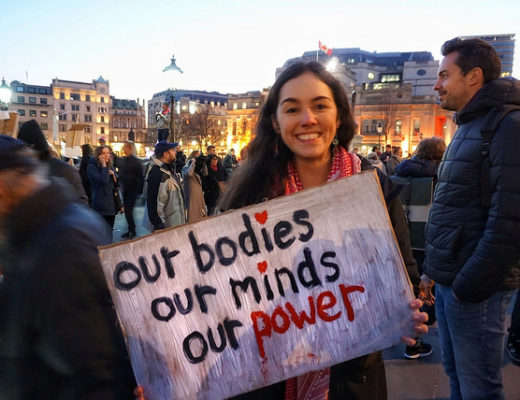
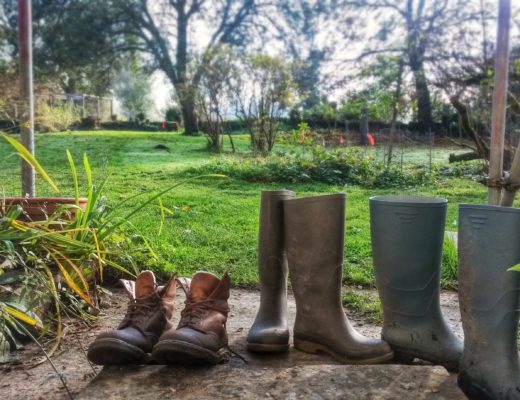

2 Comments
Maura
April 13, 2017 at 1:26 pmGreat post, Flora! I really enjoyed the poems. I have noticed that babies like to try out sounds, consonants and vowels in different ways—- to experiment and for the sheer pleasure of it. And later they use those sounds to communicate. I believe we start out as poets!
Helen
May 8, 2017 at 5:35 pmVery nice. i m also in love with london and poetry. thanks for wonderful post <3